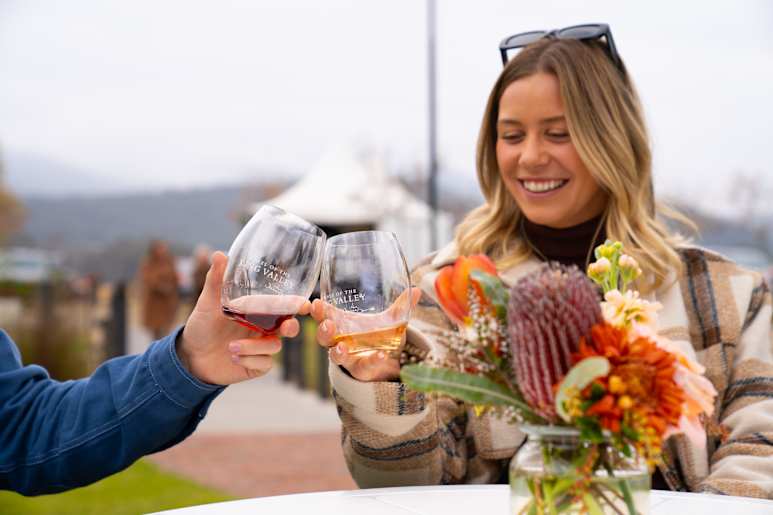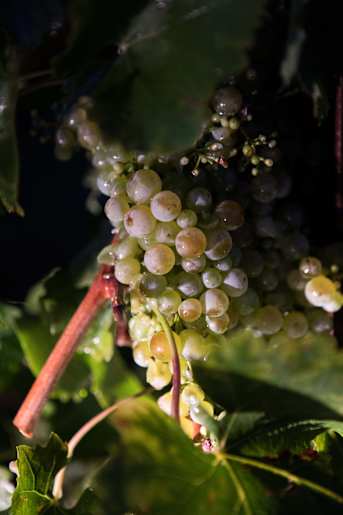GROWING recognition of King Valley's specialty wine varieties, and the continuing popularity of prosecco, are helping local producers deal with a global decline in wine consumption, and the trend of younger people turning away from more traditional red wine styles.
The latest global consumption data from IWSR reveals ongoing change in the world of wine, with wine consumption volumes declining by three per cent in 2024, continuing a longer-term trend.
An ongoing oversupply of red wine in Australia, exacerbated by China's imposition of high tariffs on Australian wine in 2020 (lifted in 2024), has led to large-scale growers, particularly in the Riverina, having to make some tough decisions.
Last week De Bortoli Wines revealed it was removing vineyards at Bilbul in the Riverina, along with shiraz vineyards in Rutherglen, responding to a downturn in demand for the traditional variety.
Meanwhile its sales of rose and King Valley prosecco were on the rise.
Latest Stories
While the changing trends, particularly from a more health-conscious under-30 demographic, are being felt in the King Valley, producers there are managing to maintain and develop an existing customer base while also finding ways to broaden their appeal.
Pizzini Wines' Louise Way said while their own demographic of consumer has always skewed a little older, there is a consistent, younger contingent also present, who want to try something new.
"We have noticed the younger wine drinkers we see through cellar door are really interested and knowledgeable about wines – and that our more unusual Italian varieties, which are typically a little lighter, more savoury and very food-friendly, are of particular interest," she said
"We also notice that at the off-site events we attend, such as The Big Design Market, Little Food Market and North East Wine and Food Festival, there is a good proportion of younger people interested in trying our wines.
"Again, I think the opportunity to try new varieties - or being introduced to different ways to enjoy the wines, such as in a brachetto cocktail or limoncello spritz - help to generate interest too."
La Cantina King Valley's Rueben Corsini agreed visitors to their cellar door were tending to move away from more traditional red varieties and towards Italian varietals including sangiovese, nebbiolo and barbera, but that applied to visitors across the board rather than in any particular age demographic.
He said the rising cost of living was still having an impact on the sale of luxury or discretionary products like wine, and that was generally the case across the sector.
"The red wine market at the moment is a challenging one, but there's no doubt there is a better understanding and attraction towards Italian varietals," he said.
"Offering preservative-free and vegan-friendly wines is a really nice niche for us - being vegan-friendly in particular is growing in significance and it's helpful - but it doesn't make us immune from the overall trends."
Wines of the King Valley president Dean Cleave-Smith said demand for the region's broad portfolio of red and white table wines, including medium bodied red varieties like sangiovese, nebbiolo, pinot noir and gamay, continues to rise.
"They are wines the red wine audience (and a younger audience) are looking for," he said.
"They are more approachable, they are generally lower in alcohol, and more suitable for drinking now (without being aged).
"It has been an industry reckoning, but one that for the most part, the King Valley has already gone through, because our transition from traditional varieties to Italian styles has already occurred."
Mr Cleave-Smith said while the soaring growth in demand for prosecco continues and is a real success story for the region, they were conscious of not being pigeon-holed as only having one wine variety.
He said their broader range of specialty wine styles which appealed to a more contemporary wine palate, held them in good stead for the next decade.
Some King Valley producers are also exploring and investing in no and low alcohol wine products, as well as alternative packaging such as single serve cans, bottles and pouches, in response to growing demand from a more health-conscious wine consumer.
Mr Cleave-Smith said the organisation is currently turning its attention to the speed at which Australia and the European Union (EU) are wanting to resume negotiations on a free trade agreement.
He said there had been media comment the EU was intending to visit Australia in late August/early September to make an announcement, which indicated talks will move "very, very quickly".
"We know there were three key areas left unresolved last time, and prosecco was one of them," he said.
"We remain very committed to our previous position that prosecco is the name of a grape variety, and it was imported to Australia as such, so we have a right to call it prosecco."
Mr Cleave-Smith said while he's confident Australia's Minister for Trade and Tourism Don Farrell understood the economic impact of any concession to naming rights on prosecco, he feared with global trade uncertainty and Australia's need to find alternative markets for products like beef, may alter the dynamic of the negotiations.
"We will keep reminding all stakeholders that the growth trajectory for prosecco remains double digit, and there are no signs of that ceasing," he said.
"The wine industry is a very complex, sophisticated, vertically integrated and regionally-oriented business, so any decisions around this has regional implications for jobs.
"We employ a huge number of people in the King Valley and across the wine region more broadly, and the minister needs to keep that in mind when making decisions around matters such as naming rights, including prosecco.
"We have the right to call it prosecco and we're not wavering on that."

















